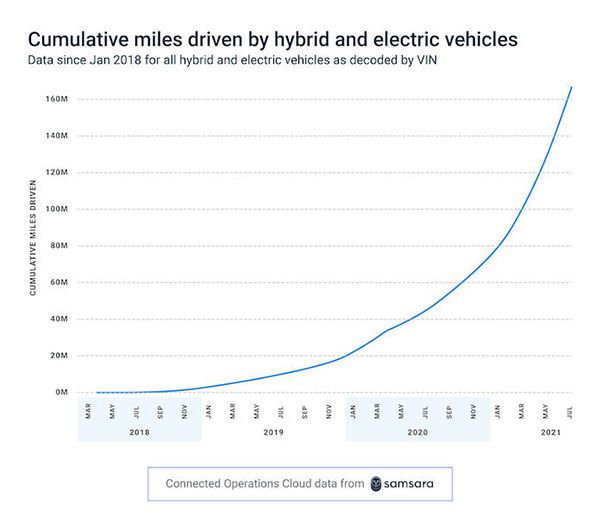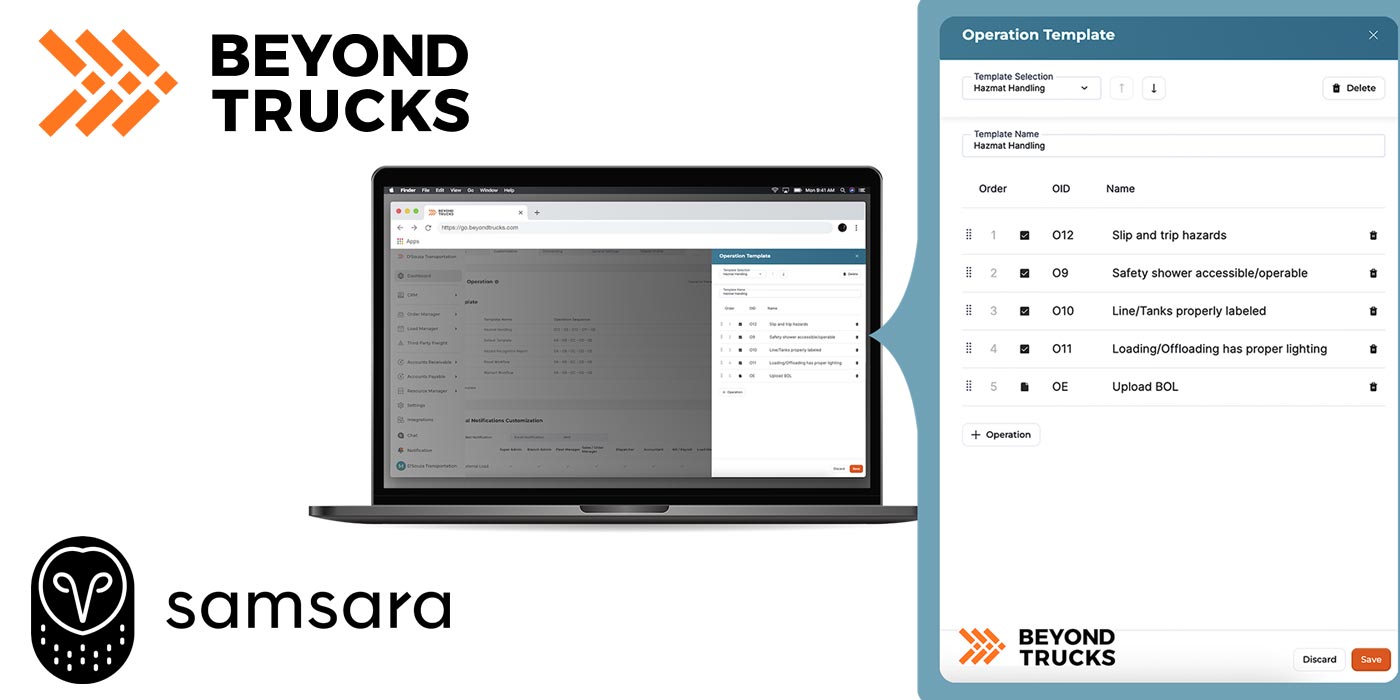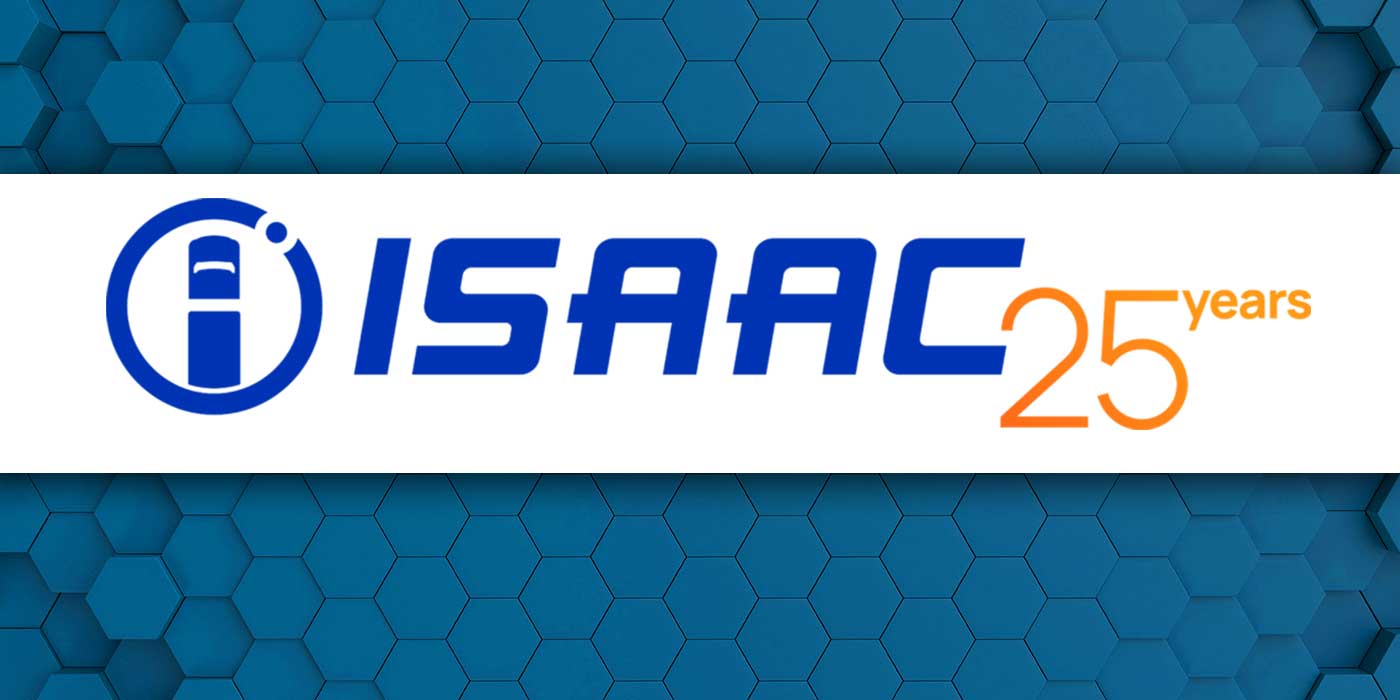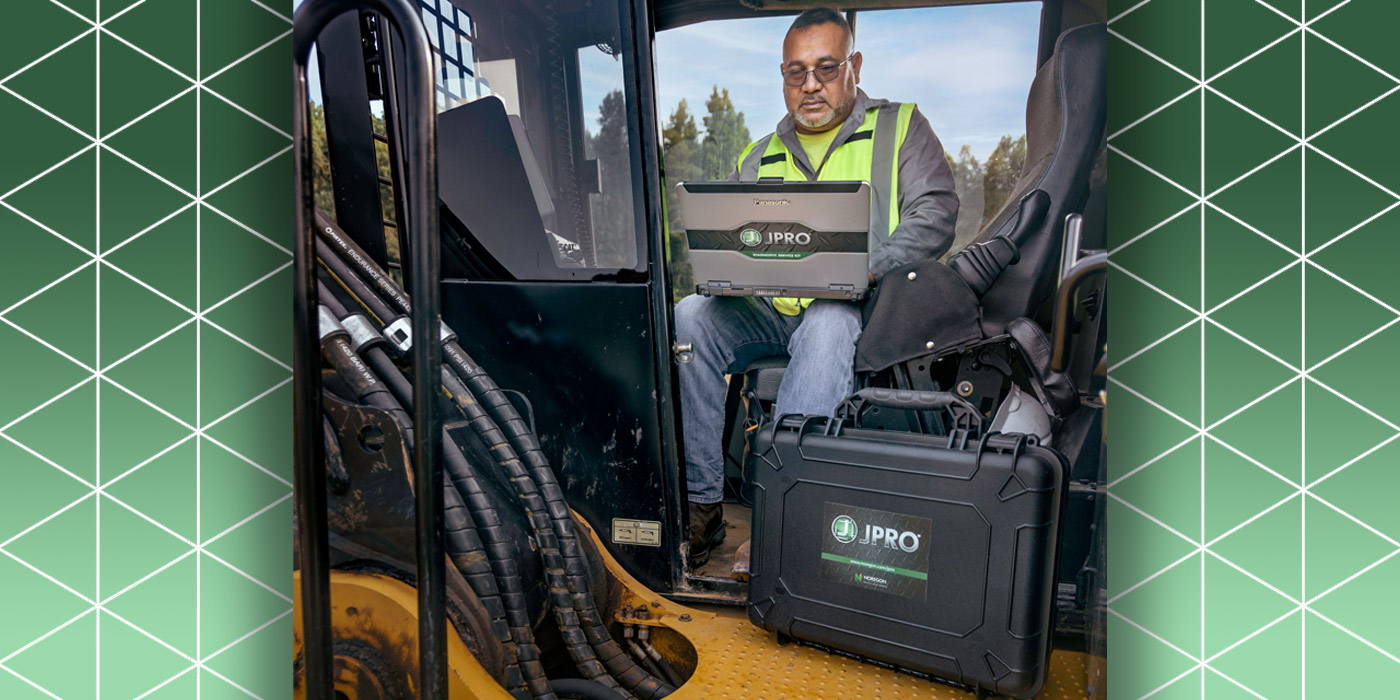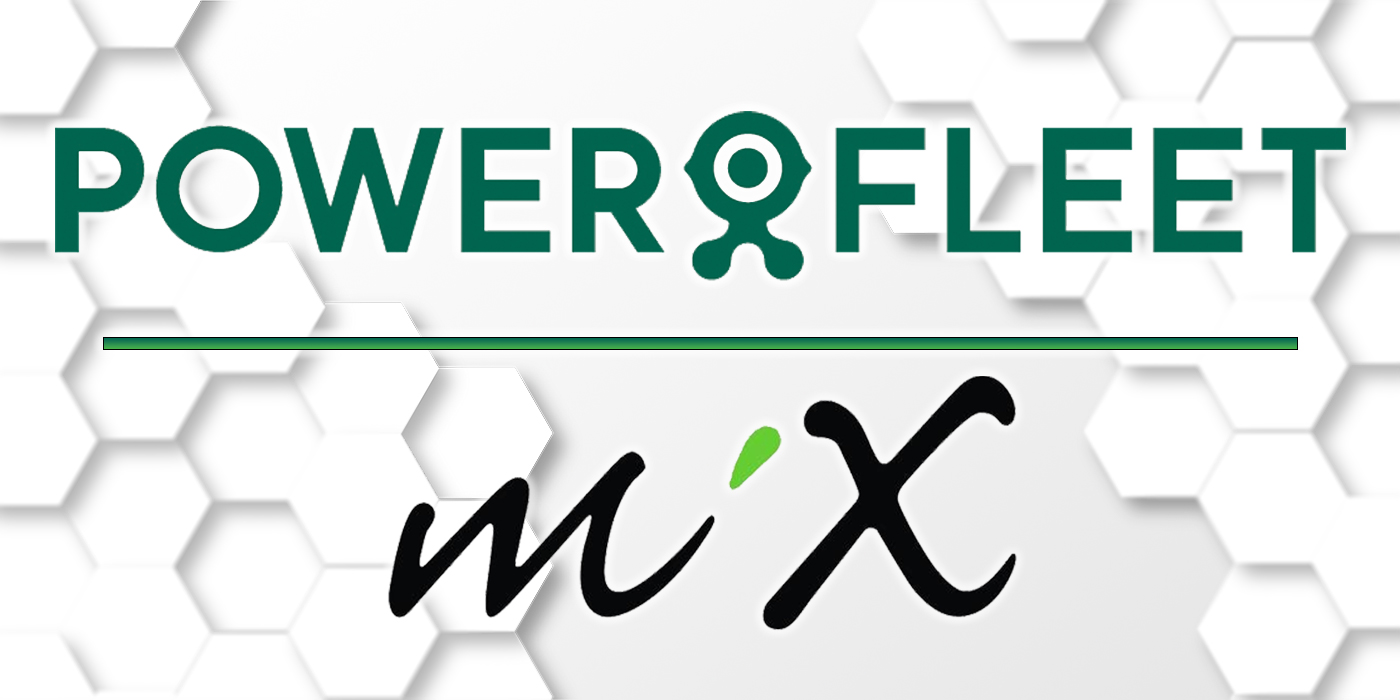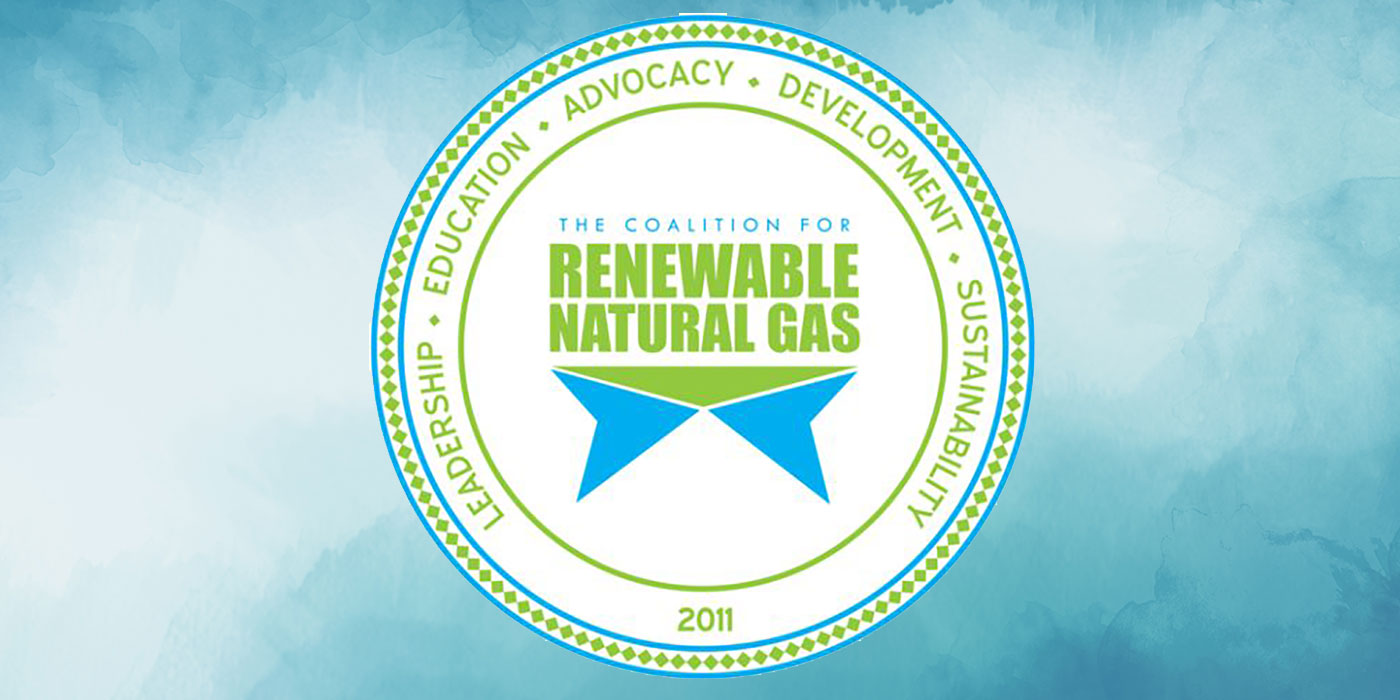In the effort to move goods as efficiently and as cost-effectively as possible, many fleets can’t help but at least be intrigued by the promises electrification claims to deliver. Electric trucks are becoming more and more popular in trucking: OEMs are developing new electric trucks, aftermarket manufacturers are making breakthroughs in electric drivetrain technology, and some of America’s largest fleets are announcing they’re going electric.
Even the most die-hard diesel enthusiasts at this point have to say: “Alright, what’s the scoop on electrification?”
The trouble is, with so much electrification talk it can be difficult to pinpoint the important data when it comes to transitioning all or a few of a fleet’s trucks to electric. To help remedy this, Samsara – which brings AI safety programs, real-time visibility, workflows, reporting and an ecosystem of integrations to trucking operations – has partnered with EVgo, a public fast-charging network for EVs. As a certified partner on Samsara’s Experts Marketplace, EVgo can now serve as a resource and implementation partner for Samsara customers interested in taking their next step towards electrification.
To discuss the partnership, as well as solutions to challenges fleets might have when transitioning to electric, Neel Sheth, director of product management at Samsara, sat down with Fleet Equipment to answer a few questions:
What are some of the unique operational challenges a fleet might run into when transitioning all or part of their fleet to electric vehicles?
With new EVs increasingly becoming available, there are both opportunities and operational challenges when a fleet considers the transition to electric. The first step is assessing feasibility and determining which vehicles are best suited to make the switch. Collecting accurate data on fuel usage, daily range the vehicle must cover and estimating the potential cost savings requires careful analysis.
Fleets may commonly experience challenges in planning around the expectations of EVs, including estimating the average and max range particular EVs can travel on a single charge, understanding where chargers are available and necessary given the routes a fleet must run and adjusting the types of maintenance that must be factored in, such as managing battery health.
Organizations also need to consider the change management associated with the transition to EVs. Drivers who have spent years filling a tank need to begin adopting an entirely new habit and process – from charging in general, to ensuring it’s done at the right place and right time to avoid peak rates.
The right telematics solution that’s built to support EVs can help alleviate these challenges. For example, with insights from Samsara’s Fleet Electrification Report, organizations can compare the vehicles across their fleet and grade them on suitability, characterizing them by okay, good, or excellent candidates for electrification.
Furthermore, robust telematics data from EVs empower fleet managers to track and reap the full benefits of going electric, from lower cost of ownership to a decreased carbon footprint.
What are some of the most important data points for an electrified fleet to track?
Whether you have an electrified fleet or not, visibility into the health and utilization of your vehicles is always critical. Real-time data points such as state of charge and charging status provide visibility into when vehicles are running low on battery and help overcome range anxiety. Similarly, fleets can optimize EV route planning and dispatch with real-time insights into fuel and energy levels or nearby charging stations. Lastly, being able to monitor holistic charging behavior and identify trends can ensure drivers are charging at optimal hours and locations.
In your experience, what is the No. 1 thing fleets don’t realize about electrifying their fleet until after they’ve followed through?
Overall, customers have been surprised by the amount of money they’re able to save with fleet electrification – not just when it comes to fuel, but maintenance as well. In a survey we conducted last year, 85% of EV owners said that traditional vehicles were more costly to maintain than electric ones. The suitability of different vehicles is also not always as predictable as organizations may think. Oftentimes given the length of various routes or frequency of trips, a fleet may assume that EVs don’t make sense. Upon getting a more data-driven assessment of their vehicle suitability, they’re pleasantly surprised that they may be able to electrify a higher volume than originally planned.
How can Samsara’s recent partnership with EVgo help guide fleets interested in electrifying all or part of their fleet?
Fleet electrification is top of mind for our customers who are eager to operate more efficiently and sustainably. Over the past year, we’ve released various tools designed for electric vehicles, such as real-time EV monitoring and diagnostics, Electrification Report for EV suitability, energy usage reporting, battery health reporting and more.
As a certified partner on our Experts Marketplace, EVgo can now serve as a resource and implementation partner for Samsara customers interested in taking their next step towards electrification. Using their existing and growing network of public fast chargers and turnkey depot solutions, EVgo can help our customers plan for their charging needs, including transition planning, infrastructure deployment, equipment provisioning, software & networking and ongoing maintenance.


